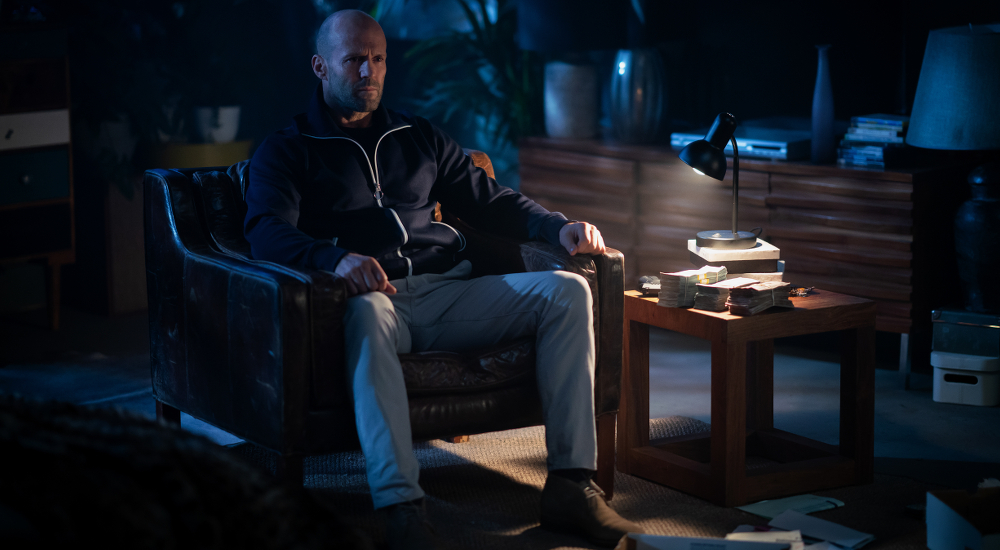"I'm starting to think he's a psychopath."
There isn't much creativity in Wrath of Man, the latest Guy Ritchie-Jason Statham collaboration that pits the action star against a slew of criminals as he seeks revenge for the vicious murder of his son.
In its barest form, the film sticks to the road most traveled, hitting the logical plot points as it navigates the congested lanes, working its way to a predictable, though admittedly satisfying, conclusion. But this film has one thing that most other action films do not: Statham. Director Guy Ritchie uses him to near flawless perfection.
Jumping around a bit sequentially, Wrath of Man quickly introduces us to Statham's Hall, known by his newly cemented colleagues at the cash truck company as H. Though we don't know anything of Hall's backstory, his introduction showcases little personality as his hardshell exterior is both obvious and intentional. In typical Statham fashion, H is presented as a tough guy; the only question that remains is how and why his mannerisms are so rigid.
As H begins to maneuver throughout the company, he finds himself paired with Bullet (Holt McCallany) and Boy Sweat Dave (Josh Hartnett), two fast-talking veterans equally quick-witted and sarcastic. But when their truck becomes the target of a hit, Hall proves the only one capable of handling the situation, quickly turning loose on the assailants.
The violence is abrupt, the killings quick. Though it all happens in a matter of seconds, the pacing strikes a nerve, heightening your adrenaline as you suddenly find yourself thrown into the moment. Ruthless and vile, Statham's H is every bit a hero, but the swift movements and absolute control create more questions about his history, a series of inquiries that don't get answered until we travel back five months.
During this backstep, we learn the origins of Hall's tough persona and his destructive abilities with a gun. I should note that while we know everything about specific events, we learn absolutely nothing about Hall as a person. That, for whatever reason, remains a mystery. But it is at this moment that the world in which Hall exists begins to expand.
The quick shots, the unapologetic violence, it all fits nicely within Ritchie's style, a style that he has practically mastered over the last several decades. Lock, Stock and Two Smoking Barrels, Snatch, Revolver, they all fit within a box, giving genre fans a masterful work that is brilliant and gruesome.
That said, I wouldn't place Wrath of Man on that level.
As the film continues to progress, the world ever-expanding, each scene declassifies another detail as to the story's true origins. The approach, though fine, lacks much creative energy. The twists and turns play out as expected, as does the big reveal during the heightened third act.
It is then that the group of thieves turn their eye on one last job, the ultimate heist that will give them all the freedom never to work again—the job: the Black Friday transport. As we learn about the details of the hit, the group begins to put things into motion. The long montage is intriguing, but the precision leads to an uninspiring conclusion.
Likely the result of too many characters and not enough screen time, Ritchie relies heavily on bullets and blood to amp up the tone. The gimmick works on occasion, but the sluggish final sequence wares you down. So much so that by the end of it all, you've somewhat lost interest in the details.
That isn't to say that Wrath of Man isn't good. Any film playing in theaters post-pandemic is, within reason, good. And Statham and Ritchie have a knack for creating a testosterone-filled, violent experience. But this film bears little outside thinking and even less inspiration. Unlike Crank, Transporter, Death Race, or Mechanic: Resurrection, this film fails to be overly ridiculous or unapologetically authentic. It lies in the middle somewhere, unsure of its identity or purpose; after watching it, we, as viewers, are satisfied but equally unsure.

